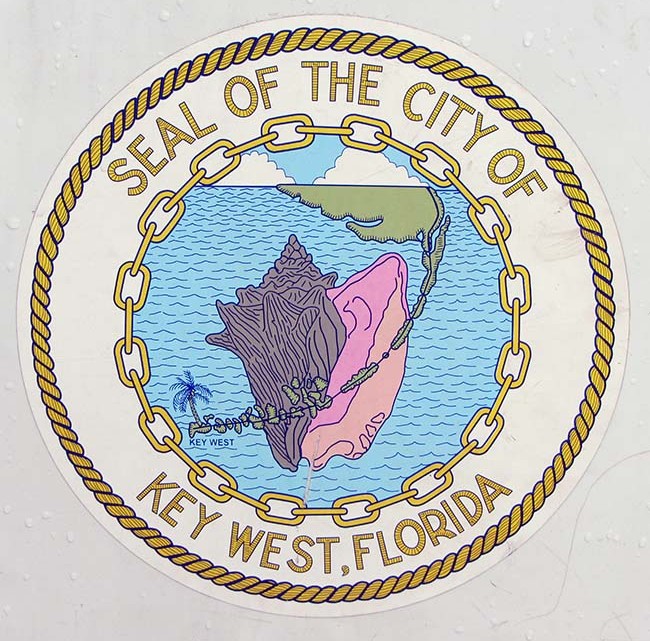Parking permit, utility fees going up in Key West
BY PRU SOWERS
KONK LIFE STAFF WRITER
The Fiscal Year 2019-20 Key West City budget isn’t even approved yet but city officials are already making good on their promise to hike several fees and utility charges as a way to increase badly-needed revenue.
Stormwater fees are going up three percent. Solid waste – trash pick-up – will go up 1.65 percent for residential houses and 1.6 percent per ton for commercial properties. And the sewer fee will rise 3.5 percent in the next fiscal year, beginning Oct. 1.
All of those increases passed unanimously at the Sept. 20 city commission meeting without any discussion. But the next item in the agenda, proposing to increase the workforce downtown parking permit fee by 46 percent, from $120 a month to $175, got a lot of attention.
The permit program is aimed at local workers and allows them to park without charge in the downtown area at parking meters and municipal lots for $120 a month. It accompanies another workforce parking program that charges $25 a month for workers to park in the Caroline Street municipal garage and either walk or grab a ride on the free Duval Bus Loop to get to their downtown workplace. Both of the permit programs charge significantly less than the market rate for what the city could receive for those parking spaces if they were open to the public. And it is time to narrow that gap, said city Parking Director John Wilkins.
“That [increase to $175 for the downtown parking permit] is to bring it closer to the market rate of monthly parking in the downtown district, which is currently at $200,” he told commissioners.
That $55 jump, 46 percent, was hard for some commissioners to swallow.
“My concern is the big jump,” said Commissioner Greg Davila. “The last increase was in October. It hasn’t even been a year since we raised it.”
Commissioners voted last October to increase the downtown permit from $100 to $120.
But Eric Detwiler, a member of the city’s Sustainability Advisory Board, told commissioners that of the 185 people who currently pay for the convenience of parking close to their business, only 49 might be workers, the people the permit program is designed to help. The others are local attorneys (31); the Tropical Shell and Gifts store at 207 Simonton (49); Ocean Key Resort, a hotel at Zero Duval St., (48); and Historic Tours of America (8). The remaining 49 have been grouped as “miscellaneous.” But Detwiler said at least one of the businesses utilizing the permit program is “gaming the system.” He pointed out that Ocean Key has a large parking lot where its employees could park. However, the hotel charges guests $25 a day to park in its lot, and uses the street permits for its employees, Detwiler said.
“We’re talking about the Ocean Key House, which owns their own parking and is basically having their employees park on your street so they can charge their guests more,” Detwiler said. “They actually charge their guests a rate of $25 a day. So, their market rate for parking for their guests is significantly more than what they’re actually paying to have their workers park on your streets.”
Commissioner Mary Lou Hoover said she knows several of permit holders in the miscellaneous category and they are business owners, not employees.
“These are not to be confused with the people in the service industry. This [proposed permit fee increase] is not going to hurt those people,” she said.
The vote to boost the permit fee to $175 was 4-3, with commissioners Billy Wardlow, Sam Kaufman and Davila voting against because they wanted a smaller increase. Wardlow said that while he had heard of parking spaces in Truman Annex being sold for thousands of dollars, the local workforce can’t afford that.
“The thing is, we’re here to help the workforce,” he said.
“I agree. If I thought this was the workers, and not the business owners, I’d be right there with you,” Detwiler told Wardlow.
For the past several budget cycles, city officials have focused on cutting spending, as opposed to increasing revenue, as a way to keep property taxes relatively stable. But all that cutting has hit the bone. City Manager Jim Scholl and finance Director Mark Finigan have been warning for months that the only way to maintain city staff, services and maintenance is to find new sources of funding. The draft 2019-2020 budget is proposing to boost property taxes by 3.5 percent over rollback – the budget is scheduled for a vote at a special meeting Sept. 3 – but it became clear in this summer’s budget workshops that increasing taxes wasn’t going to be enough to cover cost increases for personnel and maintenance.
[livemarket market_name="KONK Life LiveMarket" limit=3 category=“” show_signup=0 show_more=0]




No Comment